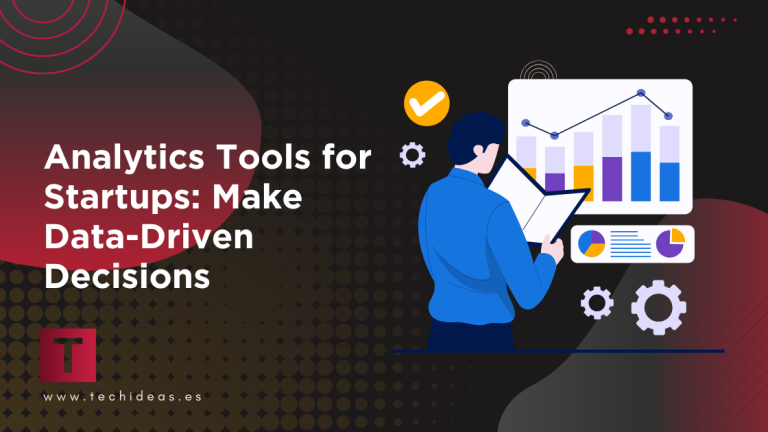Startups operate in fast-moving environments where every decision can influence growth, profitability, and long-term success. Relying only on intuition becomes risky, which is why data-driven decision-making is essential. With the right analytics tools, startups can understand user behavior, refine product performance, and make smarter choices with confidence.
Whether you’re building a SaaS platform, mobile app, AI product, or e-commerce startup, using analytics tools gives you a clear competitive edge. This article explains why data matters, which tools to use, and how startups can choose the best analytics platforms to support smarter decisions.
Key Takeaways
- Startups benefit from analytics tools by reducing guesswork and improving decision accuracy.
- Understanding user behavior helps refine product strategy and improve retention.
- Some of the top analytics tools include Mixpanel, Amplitude, Google Analytics, and Google Search Console.
- Data-driven decisions reduce risk and help startups move confidently in competitive markets.
- Different analytics tools support growth, from product analytics to BI platforms and customer data tools.
- Choosing the right tool depends on goals, integrations, scalability needs, and team skill levels.
Why Use Analytics Tools for Data-Driven Decision Making?
Analytics tools help startups gain clear visibility into how users interact with their product, how marketing campaigns perform, and where operational inefficiencies may be hiding. Instead of relying on intuition, teams can study real patterns, monitor key metrics, and understand exactly which actions lead to growth.
These tools also uncover hidden opportunities, highlight areas that require improvement, and make it easier to prioritize what matters most. By automating data collection and analysis, startups reduce human error and save valuable time.
Teams can respond quickly to changing market conditions, fix issues before they escalate, and make informed decisions backed by evidence rather than assumptions. This level of clarity helps startups optimize their resources, improve customer experience, and stay competitive in a constantly evolving environment.
The Consequences of Not Making Data-Based Decisions
Startups that operate without data often struggle to understand why customers leave, which features drive value, or which channels waste money. This lack of insight leads to misguided decisions such as building unnecessary features, mispricing products, or allocating budget to ineffective campaigns.
These mistakes add up and create long-term challenges that are difficult to reverse. Without data, founders are forced to rely on intuition, which increases the risk of slow growth, poor product-market fit, and missed opportunities.
Startups may also lose customers silently because they fail to notice early signs of dissatisfaction. In competitive markets, these gaps can cause a business to fall behind quickly, making data-driven decision-making not just helpful but essential for survival.
Key Features to Look for in Analytics Tools
Here are the features that you should look for in analytics tools:
Data Integration
A great analytics tool should connect with your website, app, CRM, marketing platforms, data warehouse, and payment systems. Smooth integration ensures all data flows into one place for unified analysis.
This eliminates manual work, reduces errors, and helps teams view customer behavior across all touchpoints. Strong integration also allows you to build a complete customer journey map without juggling multiple tools.
Data Analysis
Tools must help teams analyze user behavior, funnel performance, financial data, retention, and engagement. Advanced tools also support predictive modeling and segmentation, allowing startups to forecast trends and personalize experiences.
Effective analysis uncovers hidden patterns, showing what drives conversions and what causes drop-offs. This helps teams prioritize features and campaigns with the highest impact.
Data Visualization
Dashboards, charts, and reports help your team understand data quickly. Strong visualization makes it easier to communicate insights across departments. Clear visuals reduce complexity, making even non-technical teammates confident in interpreting results. Visual storytelling also supports faster decision-making in meetings and strategy sessions.
Collaboration Features
Startups move fast, and teams must collaborate on insights. Tools that allow shared dashboards, notes, and role-based access keep everyone aligned.
Collaboration features ensure that product, marketing, engineering, and leadership work from the same information in real time. This reduces miscommunication and speeds up execution on data-driven plans.
Scalability
As your startup grows, your data volume increases. Scalable tools ensure smooth performance without switching platforms later.
A scalable system supports more users, complex queries, and larger datasets as your product expands. This futureproofs your analytics stack and saves time, cost, and disruption that comes with migrating tools mid-growth.
Top Analytics Tools for Startups
Below are the top analytics tools startups depend on to understand users, optimize product decisions, and scale with confidence.
1. Mixpanel
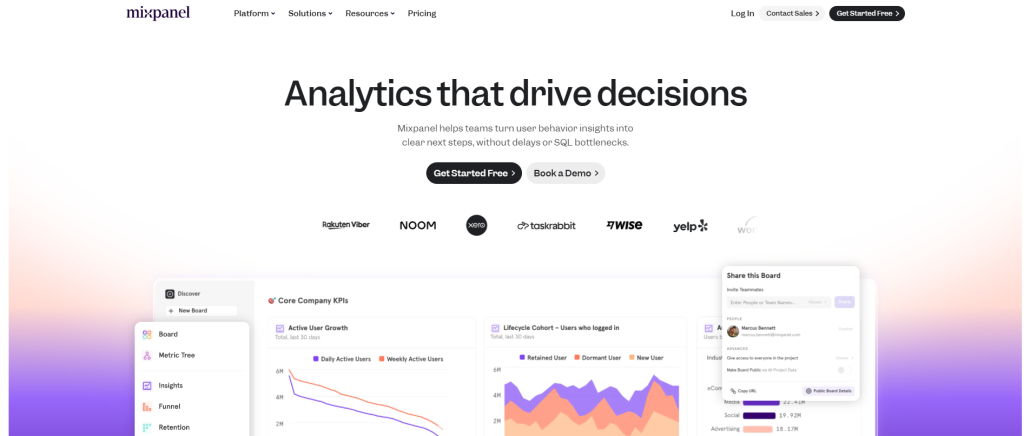
Mixpanel helps startups analyze how users interact with their product across web and mobile apps. It’s ideal for tracking funnels, retention curves, and engagement trends in real time.
Startups use it to identify bottlenecks, measure activation metrics, and experiment with product improvements. It’s especially powerful for SaaS and mobile-first teams.
Key Features:
- Cohort analysis
- Real-time event tracking
- A/B testing
- Retention and churn analytics
- Funnel optimization tools
2. Amplitude

Amplitude is designed for deep behavioral analytics and long-term product strategy insights. It maps out user journeys and helps teams understand what drives repeat usage and conversions.
Startups use it to optimize onboarding, identify feature usage patterns, and build growth loops. Its predictive capabilities make it a strong choice for scaling teams.
Key Features:
- Behavioral cohorts
- Advanced funnel reports
- Growth analytics
- Impact analysis
- Predictive insights
3. Google Analytics
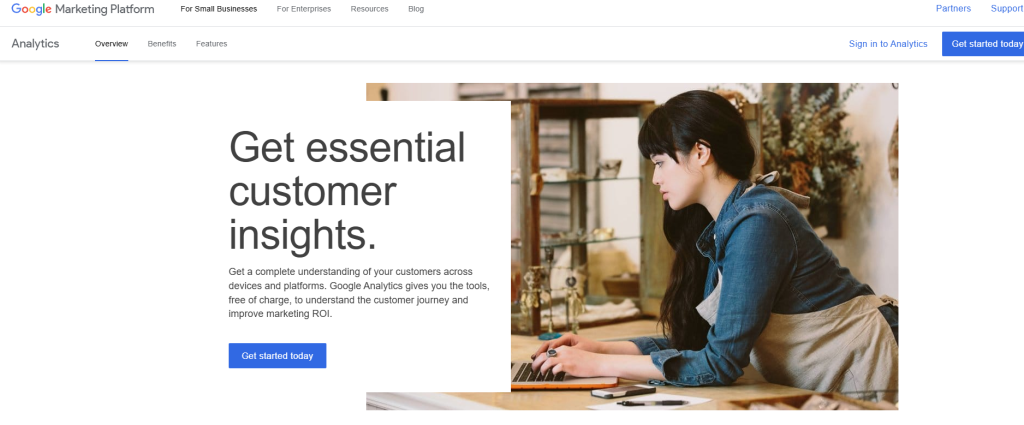
Google Analytics provides foundational website analytics for tracking traffic, user behavior, and conversion performance. It is often the first analytics tool startups adopt due to its reliability and free access. It helps founders understand acquisition channels and measure campaign effectiveness.
Key Features:
- Acquisition tracking
- Behavior flow mapping
- Conversion monitoring
- Audience segmentation
- Real-time reporting
4. Google Search Console

Search Console helps startups measure search visibility and diagnose SEO issues quickly. It reveals keyword rankings, indexing problems, and on-page performance insights. Ideal for content-led startups and early-stage growth teams.
Key Features:
- Indexing and crawling insights
- Keyword performance tracking
- Mobile usability testing
- Search visibility reporting
- Core Web Vitals monitoring
5. Metabase
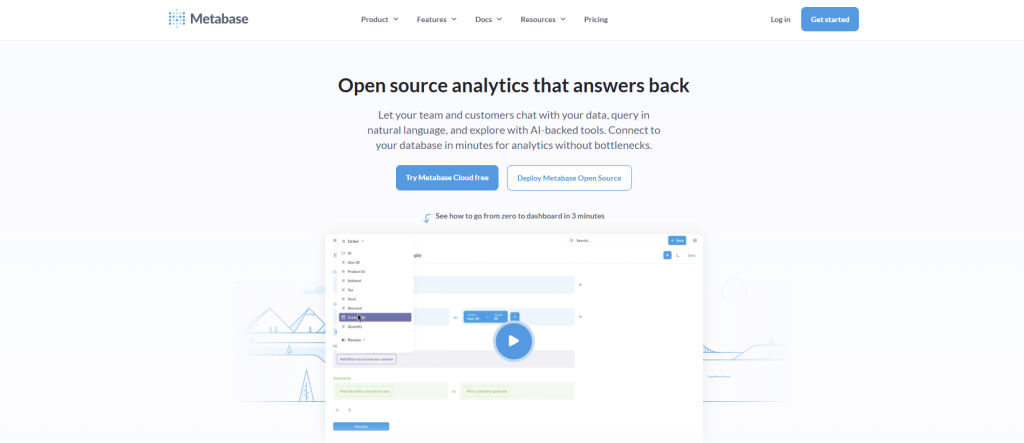
Metabase is a simple yet powerful open-source BI platform that allows teams to create dashboards and run queries effortlessly. Its no-code interface empowers non-technical founders to explore data comfortably. With collaborative features, it becomes a data hub for the entire startup.
Key Features:
- Custom dashboards
- SQL + no-code queries
- Automated charts
- Team collaboration tools
- Scheduled data reports
6. Secoda
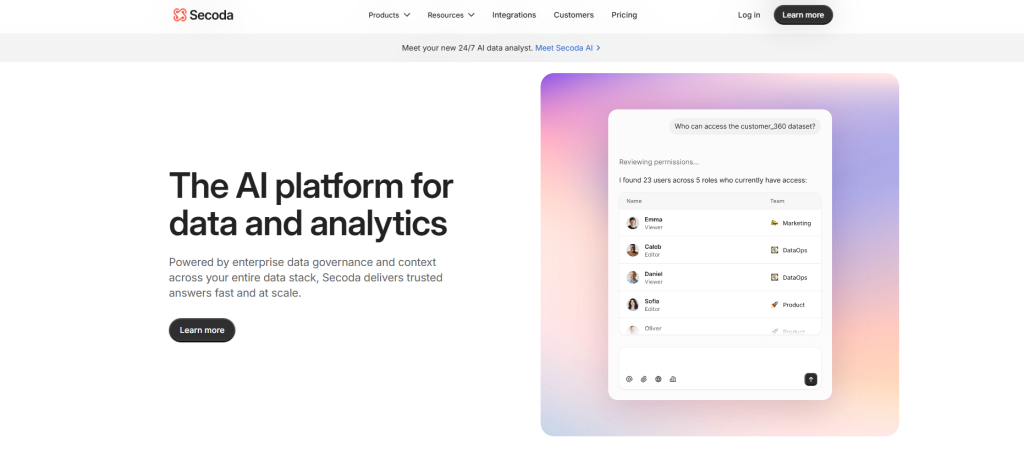
Secoda centralizes company-wide data by merging documentation, governance, and AI-assisted workflows. It’s perfect for fast-growing teams that need clarity across their entire data stack. It reduces siloed knowledge and improves the efficiency of data operations.
Key Features:
- Data cataloging
- Governance workflows
- AI documentation
- Metadata management
- Unified data search
7. dbt (Data Build Tool)
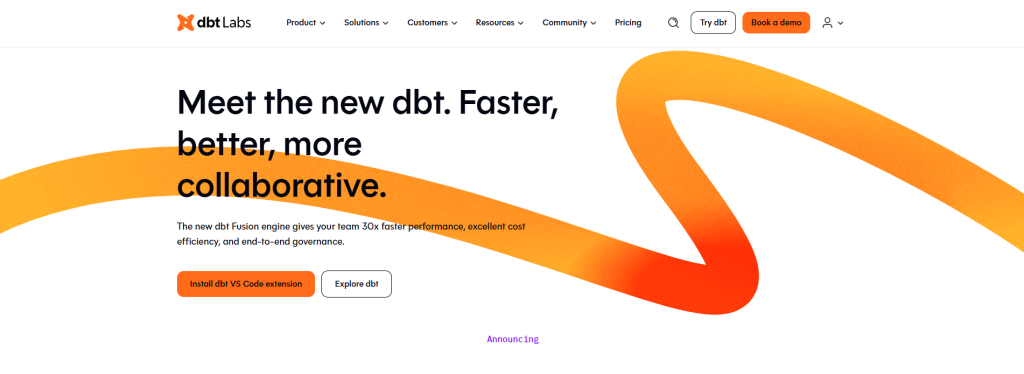
dbt helps startups standardize their data transformations and build clean, reliable models. It integrates directly into the data warehouse, ensuring consistent, organized datasets. Engineers love its version control and collaborative workflow structure.
Key Features:
- Data modeling
- Transformation pipelines
- Version control
- SQL-based automation
- Documentation generation
8. Segment
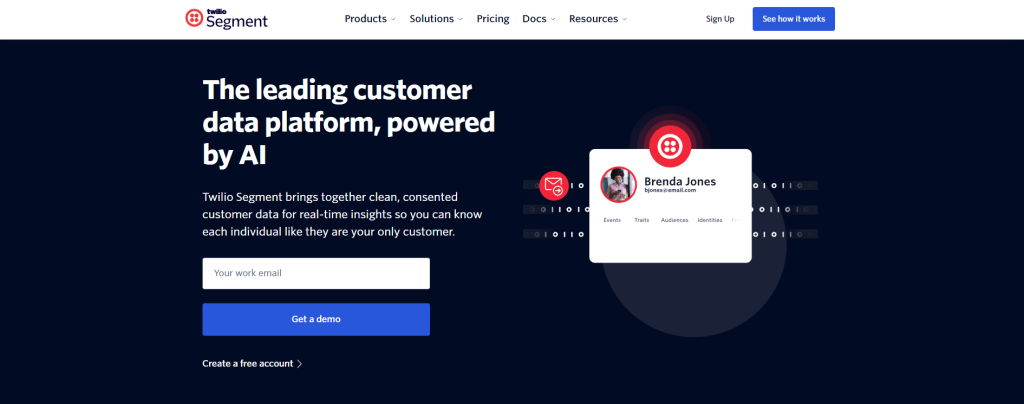
Segment centralizes customer events and routes them to analytics, advertising, and engagement tools. This ensures clean, consistent, and unified tracking across websites and apps. Startups rely on Segment to maintain data accuracy and reduce engineering overhead.
Key Features:
- Multi-source event tracking
- 300+ integrations
- Customer profiles
- CDP (customer data platform) capabilities
- Identity resolution
9. FullStory

FullStory offers session replays and behavior analytics to reveal how users navigate your product in real-time. It’s powerful for UX teams that want to understand friction points and improve user experience. Its heatmaps and interaction tools are widely loved.
Key Features:
- Session replays
- Heatmaps
- Error + drop-off detection
- Conversion tracking
- User journey insights
10. Zoho PageSense
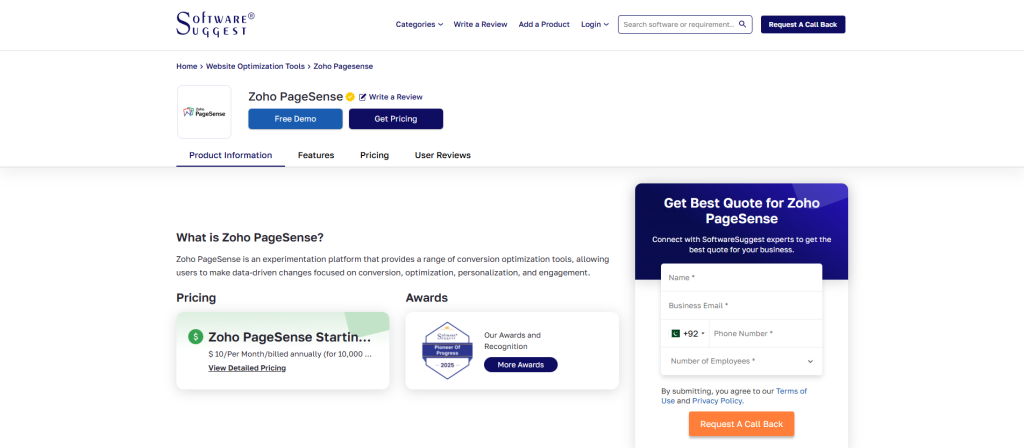
Zoho PageSense helps startups optimize conversions with A/B testing and behavioral analysis tools. It’s ideal for improving landing pages, pricing pages, and onboarding flows. It delivers strong insights for marketing and product teams.
Key Features:
- A/B testing
- Heatmaps
- Funnel experiments
- Personalization features
- Goal tracking
11. Tableau
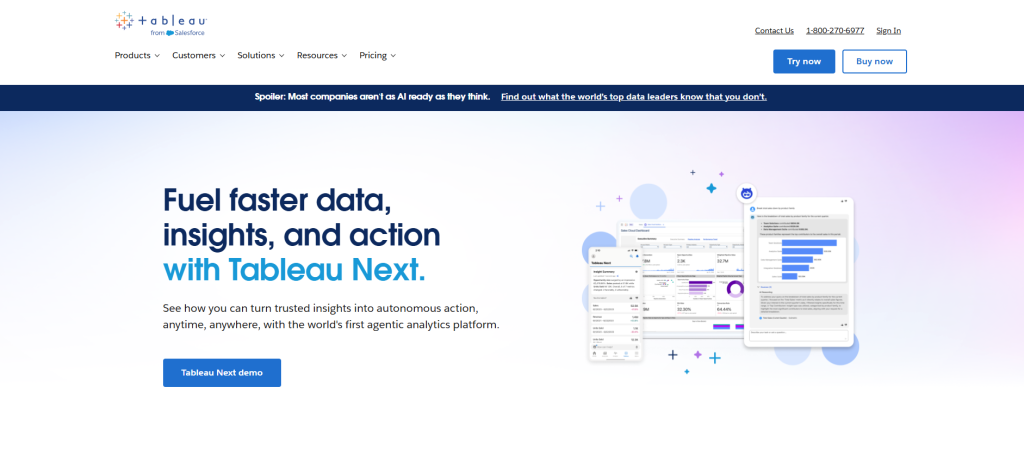
Tableau is a premium BI tool built for deep visualization and enterprise-scale analytics. Its drag-and-drop interface makes complex data easier to explore. Startups use it when they need highly visual dashboards and extensive reporting.
Key Features:
- Advanced data visualization
- Drag-and-drop reporting
- Data blending
- Large dataset support
- Real-time dashboards
12. Microsoft Power BI
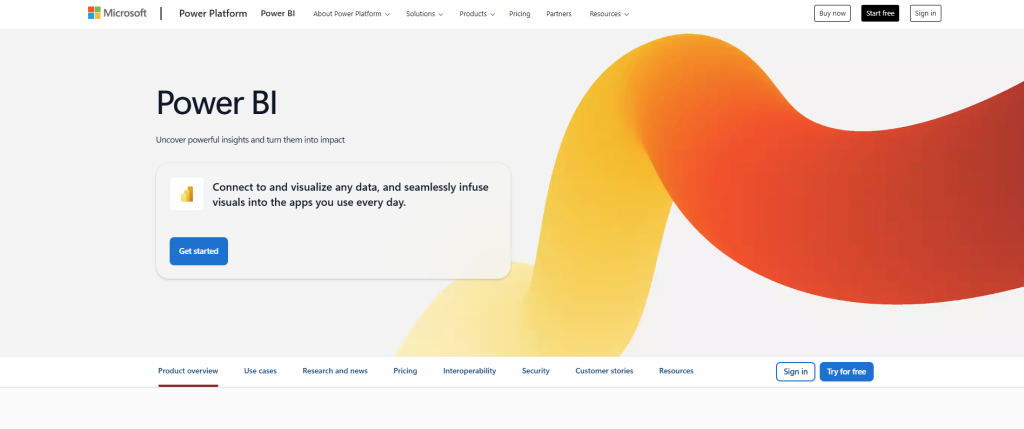
Power BI provides strong visualization and reporting features at a much more affordable price than other enterprise tools. It easily integrates with Microsoft ecosystems, making it great for SMEs and scaling startups.
Key Features:
- Custom dashboards
- Data modeling
- Automated reports
- Power Query integrations
- Cloud + desktop access
13. Alteryx

Alteryx is a powerful analytics automation platform that blends data, builds predictive models, and automates workflows. It’s excellent for startups that need deep analytics without writing heavy code.
Key Features:
- Predictive analytics
- Drag-and-drop workflows
- AI modeling
- Data blending
- Automated pipelines
14. TrendMine
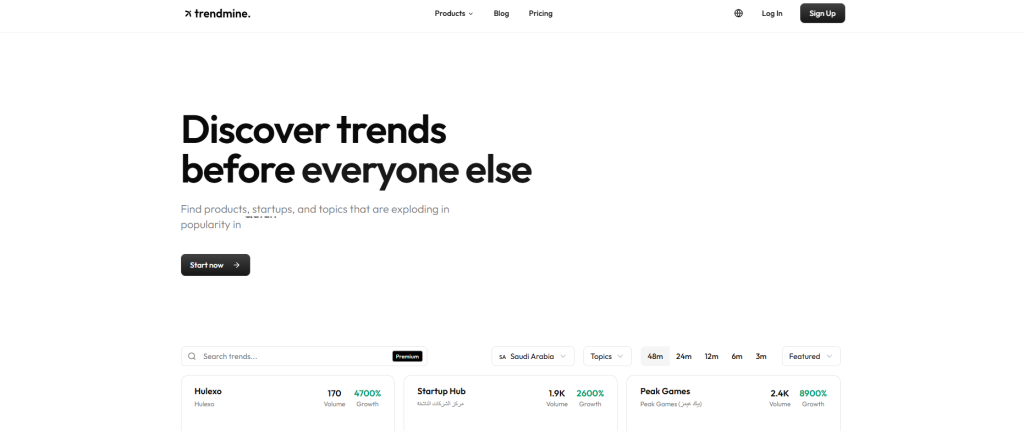
TrendMiner focuses on operational analytics, particularly for industrial, manufacturing, and IoT startups. It identifies production inefficiencies using time-series analysis.
Key Features:
- Time-series analytics
- Root-cause detection
- Operational dashboards
- Predictive monitoring
- Real-time alerts
15. TIBCO Spotfire

Spotfire combines strong visualization with predictive analytics and AI assistance. It’s ideal for startups needing more advanced modeling capabilities.
Key Features:
- Predictive modeling
- Data exploration
- Interactive dashboards
- AI recommendations
- Statistical analysis
16. Minitab

Minitab is specialized for statistical computations, making it ideal for hardware, biotech, and research-heavy startups. It provides deep analytical power for experimental and technical insights.
Key Features:
- Statistical modeling
- Regression analysis
- Quality control tools
- Forecasting
- Hypothesis testing
17. PostgreSQL

PostgreSQL is a robust open-source database that supports complex queries, scalable architecture, and enterprise-grade reliability. It’s the backbone of data for thousands of startups worldwide.
Key Features:
- Advanced SQL support
- Strong indexing
- Extensions like PostGIS
- ACID compliance
- High scalability
How to Choose the Right Analytics Tool for Your Startup
Choosing the right analytics tool depends on your startup’s goals, team skills, and growth stage. The ideal platform should simplify your workflow, support long-term scaling, and help your team make smarter decisions with less effort.
Key factors to consider when choosing a tool:
- Define your goals: decide whether you need product analytics, marketing insights, funnel tracking, financial data, or customer behavior metrics.
- Check integrations: ensure the tool connects smoothly with your website, app, CRM, warehouse, payment tools, and marketing platforms.
- Evaluate pricing and scalability: choose software that fits your current budget and won’t become too expensive as your data grows.
- Assess the learning curve: pick a tool your non-technical teams can understand without relying on engineers for every report.
- Look for automation and AI: features like automated insights, anomaly alerts, and predictive analytics reduce manual work and speed up decisions.
Why Data-Driven Decision Making Matters for Startups
Data-driven decision making ensures your actions are based on facts, not assumptions or gut feelings. For startups operating with limited resources, this clarity reduces costly mistakes and improves the accuracy of every strategic move.
It also helps teams experiment confidently, validate ideas quickly, and adjust direction without wasting time. With the right analytics tools, startups can track KPIs, run experiments, and measure how every product change or marketing effort impacts the business.
Data helps uncover opportunities earlier, fix hidden problems, and create a competitive edge in crowded markets. Ultimately, a data-driven approach fuels smarter decisions, faster growth, and long-term sustainability.
Challenges Startups Face in Using Data
Using data comes with several obstacles that early-stage teams must manage carefully. Without the right skills, structure, and systems, data can become confusing or unreliable for decision-making. Here are some main challenges startups face in using data:
- Poor or incomplete data quality
- Limited data expertise on the team
- Resistance to adopting new tools
- Difficulty scaling systems as data grows
- Security and compliance requirements
Conclusion
Analytics tools give startups the clarity they need to move fast, reduce uncertainty, and act on insights that truly matter. By understanding user behavior, tracking performance, and identifying what drives growth, teams can make decisions that are rooted in data rather than assumptions. This results in smarter strategies, stronger products, and more predictable outcomes.
As your startup evolves, building a data-driven culture becomes just as important as choosing the right tools. Begin with essential platforms, teach teams to rely on insights, and expand your analytics stack as your needs grow. With the right approach, data becomes a long-term advantage that supports innovation, efficiency, and sustainable growth.
FAQs
Big Data helps startups uncover hidden patterns, user behaviors, and market trends that are not visible through manual observation. These insights allow teams to make strategic decisions backed by evidence rather than assumptions.
Data analysis reveals what is working, what needs improvement, and where potential risks may arise. It helps startups prioritize resources effectively and build strategies that support sustainable growth.
Tools like Mixpanel, Amplitude, Google Analytics, Segment, Power BI, and dbt offer strong features for tracking user behavior and scaling data insights. They are widely used by early-stage and growing startups to optimize product and marketing decisions.
Startups should evaluate their goals, required integrations, and future scalability before selecting a tool. Considering pricing, team skill levels, and long-term data needs helps ensure a perfect platform fit.
Analytics tools provide valuable insights, but they work best when combined with intuition, market understanding, and user feedback. A balanced approach ensures decisions remain flexible, realistic, and aligned with real-world conditions.



